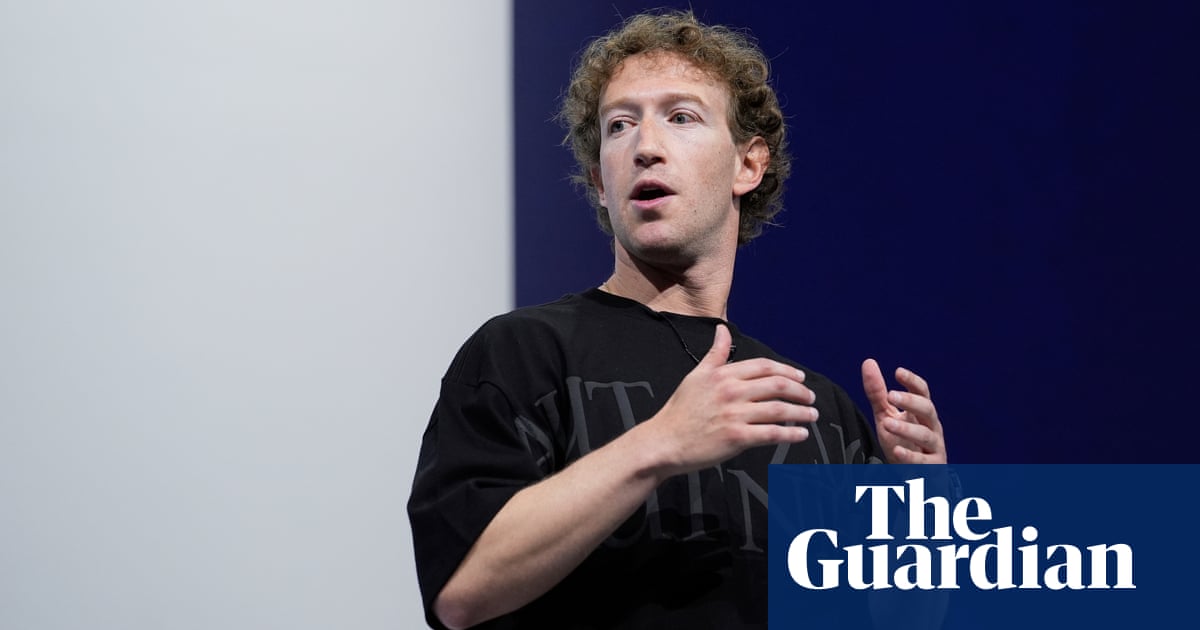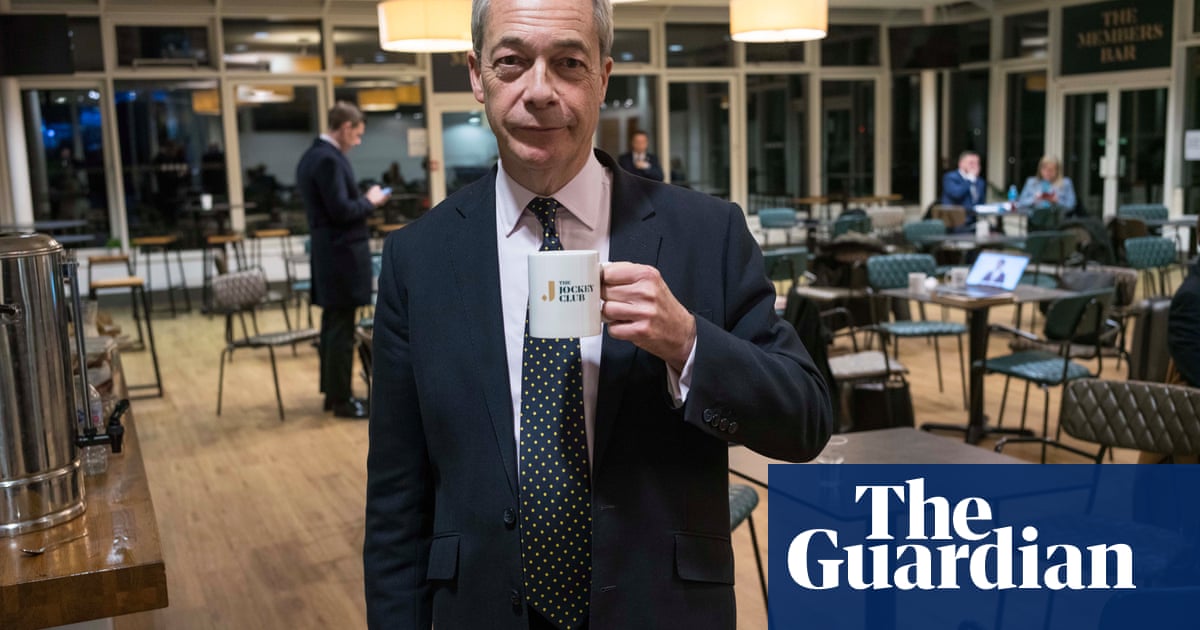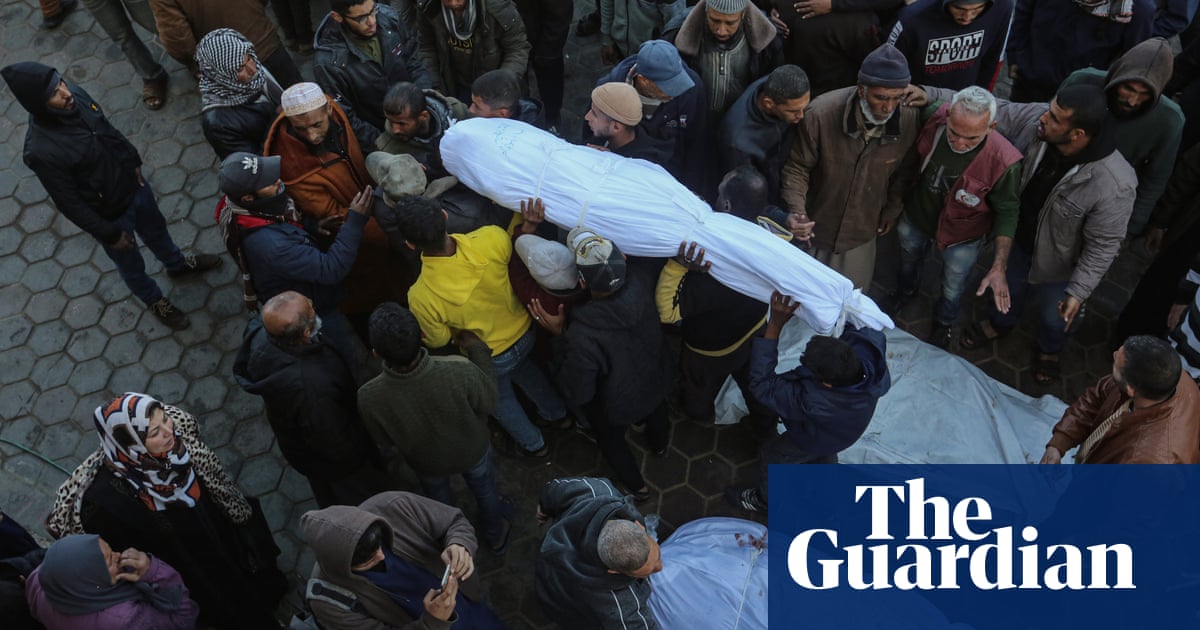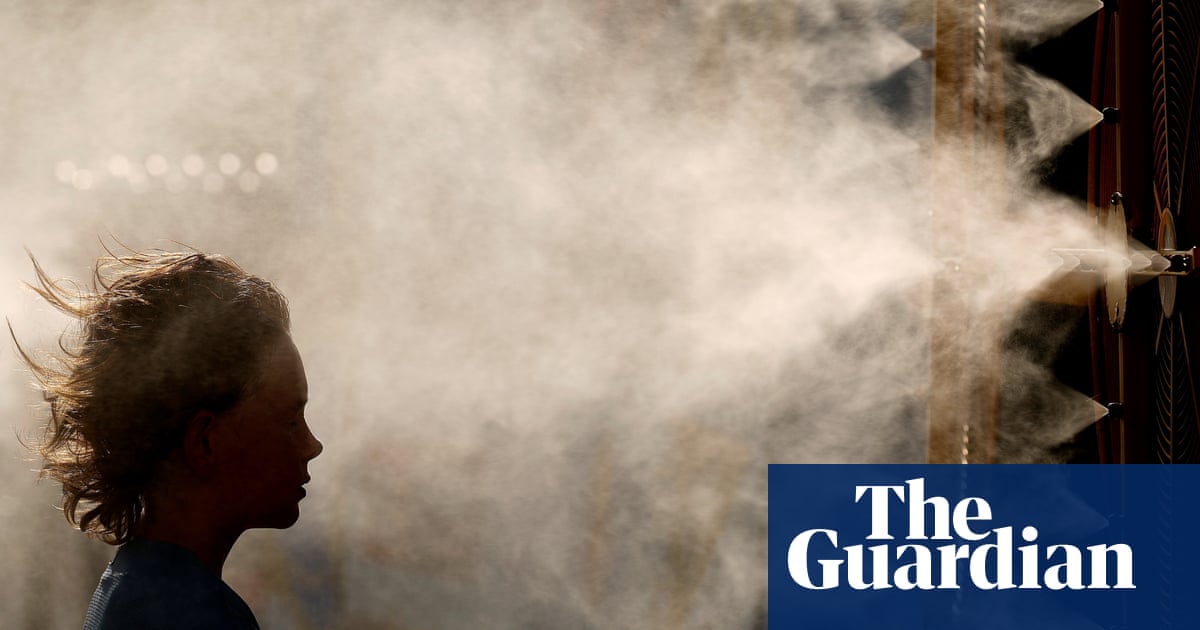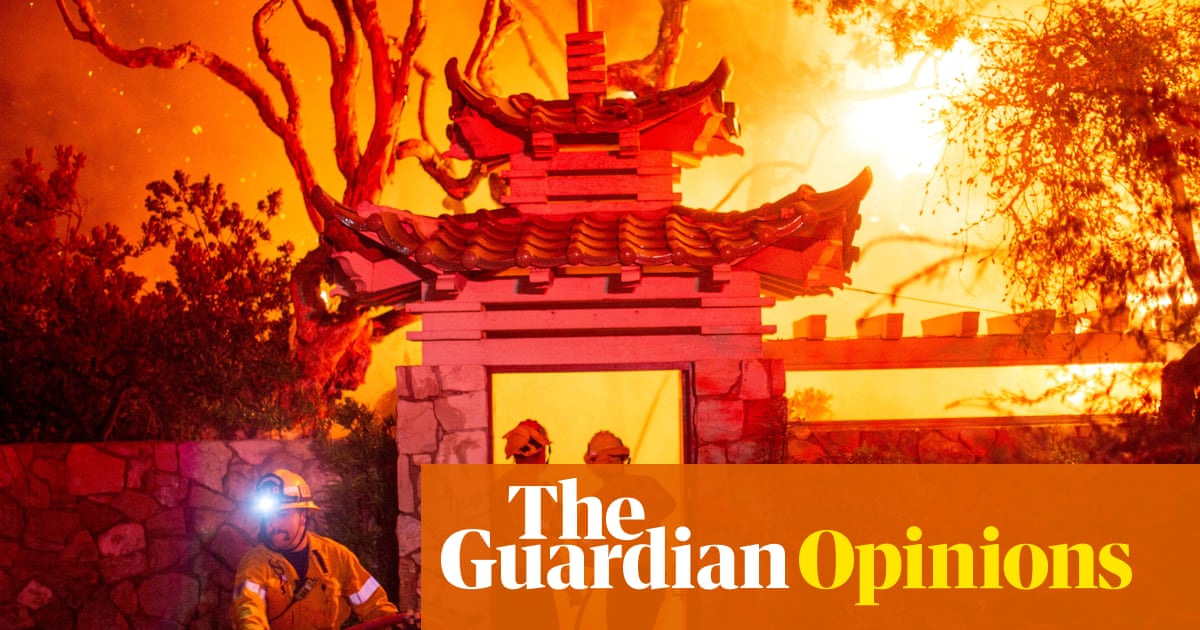Years of gang warfare have shuttered his country’s health system. About 700,000 people have had to leave their homes, many to live in tents. His son was abducted and held by a gang for months and his medical staff, those who have not fled, are regularly kidnapped.
Dr Jean William “Bill” Pape believes Haiti has now reached its lowest point: “I don’t think we can get any lower.” But people’s needs will not wait for an end to the violence, says the founder of the Gheskio (Haitian Group for the Study of Kaposi’s Sarcoma and Opportunistic Infections) network of health clinics.
Healthcare professionals are not immune to the violence. On Monday an ambulance run by the charity Médecins Sans Frontières was ambushed in Port-au-Prince as it carried three injured young people to an MSF hospital. The workers were teargassed and beaten and their passengers dragged out and at least two were killed.
Pape still holds on to hope. “I prefer to see the good part, the glass half full, because hope is the only thing that remains here,” he says. “Even when it is not there, you have to create it, because it is so essential for our people to know that there will be a better life.”
On Friday, Pape will give the commemorative lecture at the American Society of Tropical Medicine and Hygiene’s annual conference. He will tell attendees in New Orleans that “public health is not rocket science” but requires determination, even in the most difficult of circumstances.
Last year, his 33-year-old son, Douglas, was kidnapped from the farm where he works. Pape’s wife received a ransom call and a video of Douglas being beaten.
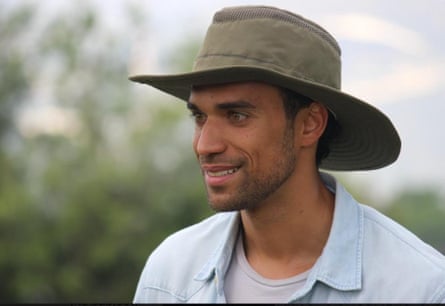
“It was a difficult situation,” Pape says. The family paid five ransoms and Pape went to meeting places 11 times before Douglas was released in March. “To come back without him was tough for my wife,” he says. “But you have to have a strong belief that when you do good, good things will happen.”
The kidnapping did not push the family to flee. “Bizarrely, it strengthened our determination [to stay]. We got so much support.” He says thousands of Haitians marched demanding he be freed – Douglas heard the protest from where he was being held.
“He’s not mad at his kidnappers,” Pape says. “He talked to them at length because he had nothing else to do. And he said that many of them are people with nothing to do. They cannot find work … The soldiers are often very young. The gang soldiers, they are 16 years old, 17 years old, they don’t want to do that work. It’s because the country has nothing better to offer.
“Some of them entered this work for protection for their family … it’s a complex situation. It’s not bad guys against good guys.”
Gheskio’s main Port-au-Prince site is 10 metres from one gang’s headquarters. Over the past three years, more than 20 members of Gheskio staff have been taken. “We didn’t pay [for their release] – we just closed the institution: because we are so embedded in the community, people put pressure on the gangs, and the gangs themselves freed our staff.”
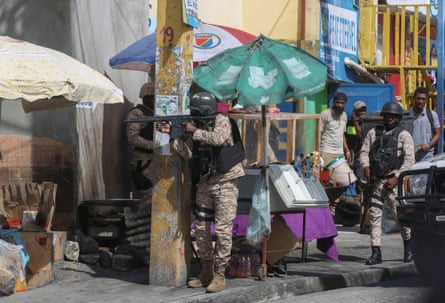
There are other challenges – Pape says 63% of its staff have had to leave their homes because of violence, and about 70% have fled the country, usually taking advantage of programmes in the US and Canada.
“They left with tears in their eyes,” he says. “They didn’t want to go, but I understand when you have children that cannot go to school, when you risk being kidnapped. We don’t blame them.”
Malnutrition is on the rise in the city, Pape says, as gang blockades stop food getting through, leaving it to rot in the fields.
Gheskio provides its free services in camps for Haiti’s internally displaced people – including giving out whistles so women can alert the rest of the camp if gangs encroach. It also runs a school, a vocational course for women who have survived violence, a factory producing chlorine to clean water, and a microcredit programme.
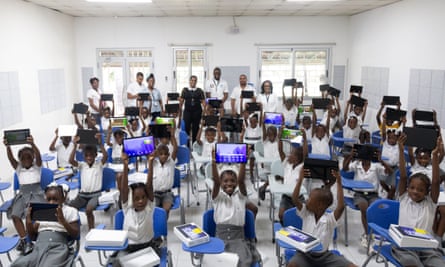
Haiti’s remaining acute hospitals treat gunshot wounds on a daily basis, and Pape will not allow shooting injuries to be treated at his clinics, wary of being seen to take sides should police arrive.
after newsletter promotion
Returning to Haiti in 1979 after medical training in the US, Pape’s first project was to tackle the infantile diarrhoea that he says accounted for about half of all infant deaths. At the State University hospital, 40% of children admitted died.
He instituted measures including ensuring children with diarrhoea were treated as emergencies and allowing mothers to stay with them. The standard intravenous fluids were expensive and so Pape returned to his university library and found research on adult cholera patients rehydrated with an oral fluid.
“I prepared the fluid for those kids – I just decreased the concentration of sodium by half – and it worked beautifully. The mortality dropped from 42% to less than 1% within a year … this is one simple example of what, essentially, public health is all about.”
A few years later, he was called on to work with a mysterious cohort of adults with diarrhoea. “Those were the first cases of Aids – I did not recognise them as such, nobody did.”
This spurred the founding of Gheskio in 1982 – researching the spread of HIV/Aids in a poor country, and eventually spearheading programmes that have seen Aids-related deaths fall from the number one cause of mortality in Haitian adults to the seventh, says Pape.
Now, he says, “my Aids patients are dying of cardiovascular disease, which is by far the number one cause of mortality”.
The team has pinpointed high blood pressure (hypertension) as key to heart problems, linked to high levels of lead in patients, and, against the odds given Haiti’s struggles, is following a research cohort of 3,000 patients with cardiovascular disease. “It is when things are hard that they should get done,” Pape insists. “It’s particularly important to conduct research in this kind of setting.”
Pape values collaboration with the international community, but believes “a Haitian solution” must be found. Gangs have “made the lives of poor people even harder” he says.
“I think that this is the biggest [chance] against the gangs, when you have an entire population supporting efforts to get rid of gangs,” he says.
“If we’re able to stick together, those who are rich, those who are less rich, those who are poor, we will overcome any obstacle.”

.png) 1 month ago
16
1 month ago
16









